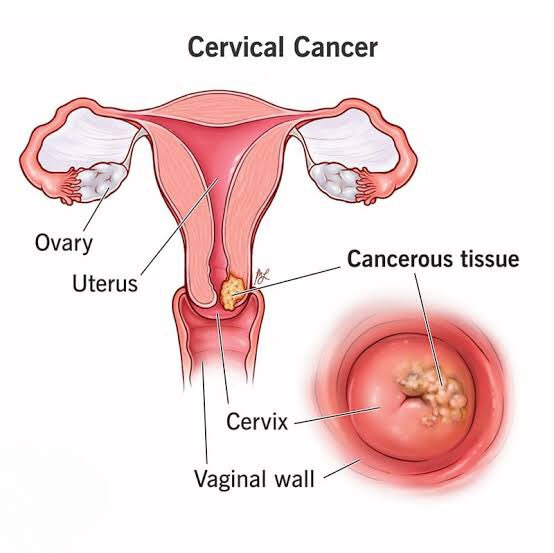- Home
- About Us
- Doctors
- Specialties
- Bariatric Surgery
- Bone Marrow Transplant
- Cancer
- Cardiology
- Cardiovascular And Thoracic Surgery
- Critical Care Medicine
- Dental Surgery
- Dermatology & Cosmetology
- Diabetic Foot Care
- Ear, Nose & Throat
- Endocrinology
- Fetal Medicines
- Gastroenterology
- General Medicine
- General Surgery
- HPB & Gastrointestinal Surgery
- Interventional Radiology
- IVF
- Kidney Transplant
- Laparoscopic Surgery
- Liver Transplant
- Medical And Hemato Oncology
- Neurology
- Neuro & Spine Surgery
- Nephrology And Dialysis
- Nuclear Medicine
- Orthopedic
- Ophthalmology
- Obstetrics And Gynecology
- Pathology Laboratory
- Pediatric
- Peripheral Vascular And Endovascular Surgery
- Physiotherapy and Rehabilitation
- Plastic Reconstruction
- Plastic & Cosmetic Surgery
- Pulmonary Medicine
- Radiation Oncology
- Radiology
- Robotic Surgery
- Surgical Oncology
- Urology
- Facilities
- Patient Area
- Testimonials
- Media
- Contact Us
Cervical Cancer
Cervix Warriors: From Detection to Healing, We Stand Strong
At Universal Hospital, our dedicated team of specialists, including gynecologic oncologists, oncologists, radiologists, and support staff, is committed to providing comprehensive and personalized care for individuals facing cervical cancer. Cervical cancer begins in the cells lining the cervix, the lower part of the uterus.
What is Cervical Cancer?
Cervical cancer is a type of cancer that occurs in the cells of the cervix, which is the lower part of the uterus (womb) that connects to the vagina. Most cervical cancers are caused by persistent infection with high-risk types of human papillomavirus (HPV), a sexually transmitted infection.
Risk Factors:
HPV Infection:
- Persistent infection with high-risk types of HPV, especially HPV-16 and HPV-18, is the leading cause of cervical cancer.
Smoking:
- Women who smoke are at an increased risk of developing cervical cancer.
Weakened Immune System:
- Conditions or medications that weaken the immune system may increase vulnerability to HPV and cervical cancer.
Oral Contraceptive Use:
- Long-term use of oral contraceptives has been associated with a slightly increased risk.
Multiple Pregnancies:
- Women who have had three or more full-term pregnancies may be at an increased risk.
Symptoms:
- Abnormal Vaginal Bleeding:
- Between periods, after intercourse, or after menopause.
- Pelvic Pain:
- Pain during intercourse or pelvic pain not related to menstruation.
- Abnormal Vaginal Discharge:
- Unusual color, consistency, or odor.


Diagnosis:
- Pap Smear:
- Screening test to detect abnormal cervical cells.
- Colposcopy:
- Visual examination of the cervix using a colposcope for a more detailed evaluation.
- Biopsy:
- Removal of a small tissue sample for laboratory examination to confirm the presence of cancer.
Prevention:
- HPV Vaccination:
- Vaccination is recommended for adolescents and young adults to prevent HPV infection.
- Regular Pap Smear (Pap Test) Screening:
- Detects abnormal changes in cervical cells before they become cancerous.
- HPV DNA Test:
- Identifies high-risk HPV types in cervical cells.
- Safe Sex Practices:
- Using condoms may reduce the risk of HPV transmission.
Staging:
- Prognosis depends on factors such as the stage of cancer, age, overall health, and response to treatment.
- Early detection through screening improves outcomes.
Treatment:
- Surgery:
- Removal of the cancerous tissue (conization, hysterectomy, lymph node removal).
- Radiation Therapy:
- High-energy rays target and kill cancer cells.
- Chemotherapy:
- Drugs to kill or slow the growth of cancer cells.
Prognosis:
- Prognosis depends on factors such as the stage of cancer, age, overall health, and response to treatment.
- Early detection through screening improves outcomes.
Follow-Up and Monitoring:
- Regular follow-up examinations and tests to monitor for recurrence.
Cervical Cancer Care at Universal Hospital:
- Multidisciplinary Gynecologic Oncology Team:
Our hospital is equipped with a multidisciplinary team of experts who collaborate to provide a comprehensive approach to cervical cancer care. This team includes gynecologic oncologists, medical oncologists, radiation oncologists, radiologists, and support staff.
- Advanced Diagnostic Technologies:
Universal Hospital employs state-of-the-art diagnostic technologies, including Pap tests, HPV testing, colposcopy, and biopsy procedures, to accurately diagnose and stage cervical cancer.
- Personalized Treatment Plans:
Treatment plans are tailored to each patient’s specific diagnosis, considering factors such as the stage of cervical cancer, tumor size, lymph node involvement, and the patient’s overall health. Our goal is to provide the most effective and personalized care for every individual.





